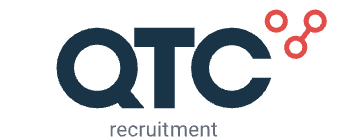Written by raisa - 4 Minutes reading time
Your gender (partly) determines which vacancies you see

Your gender shouldn't matter when it comes to finding a good job. Yet it does play a role, and it will get worse if online job boards start using artificial intelligence more often in the future.
So-called gender bias, prejudices based on your gender, plays a role in your job search. Recent research shows that there is a degree of gender bias in the way you get job postings from online job boards. The same research shows that artificial intelligence (AI) can determine your biological gender based on the words on your resume.
Pattern recognition
Dr. Harrie Oosterhuis, lecturer in machine learning at Radboud University Nijmegen, specifies where the problem lies: with machine learning as part of AI, or pattern recognition. ‘A pattern recognition system learns to recognise patterns in large amounts of data, making it ‘intelligent’. Such as matching CVs to certain vacancies.”
Why is that problematic? 'Because in this way algorithms make predictions about vacancies that suit you, while those predictions depend on your gender,' explains Clara Rus, the master's student who conducted the research. "That can have unpleasant consequences."
Rus got her results by conducting a word association test. This test checks whether certain words in job titles or skills are more commonly associated with men or women.
“Take the job title driver as an example,” says Rus. “If a job board algorithm learns by analysing data that that job title is more associated with men, because there are more male drivers, it is more likely to present that job vacancy to men than to women. Regardless of skills or previous work experience.”
Social or societal consequences
The problem: an algorithm looks for patterns in data, without considering social or societal consequences. 'Computers are good at finding a correlation because of pattern recognition,' says Oosterhuis. “But not necessarily in finding causal relationships.”
For example, men are not by definition better drivers than women. “In addition, the link between the words you use on your resume and the job opportunities AI presents you can have social consequences and promote inequality,” says Rus. “If there is gender bias in a job board's AI program, it can reinforce existing gender-normative patterns in which those biases are expressed.”
Prevention is better than healing
It is important for online job boards and recruiters to pay attention to this now, says Rus. 'In some sectors, gender bias is deeply ingrained and male-female ratios are not balanced. It is unwise not to take this into account when deploying AI, because it will not close the gap between men and women, and may even widen it.”
According to assistant professor Oosterhuis, the knife cuts both ways. “The opportunities that pattern recognition systems offer online job boards and job seekers are just as prominent as the dangers. It can help match vacancies to the right candidates, but not if it involves unintentional discrimination.”
According to Oosterhuis, there are two options to avoid discriminatory outcomes: "Either we should teach computers to become very bad at recognizing gender, or we should learn recommendation systems to automatically make a top 10 with a 50/50 male-female distribution."
Legislation
Being discriminated against by a pattern recognition system is annoying, says Oosterhuis. “Usually, the job seeker pays the bill. He or she is missing out on a job and income, while he or she had no influence at all on the system that made the recommendations.'
As far as he is concerned, it is therefore necessary to gain more insight into how an algorithm arrives at a certain decision. “Discrimination based on gender, name or cultural background is illegal. But we are not yet so far that you as a job seeker can find out whether you have been discriminated against by an algorithm or not.'
Russian agrees. Until then, she says, the ball is with job boards themselves. ‘The method I used in my research can easily be applied by online job boards to find out whether the systems they use discriminate. If data shows that they do this, job boards can at least inform job seekers about this.'
In any case, job boards should inform job seekers about possible gender bias, if the data shows that.”
Artificial Intelligence makes it possible to introduce vacancies to you that suit you based on, for example, keywords in your CV. Are you looking for jobs online in the Life Science industry but still not found the ideal match? At QTC Recruitment we are highly trained to match your desires with open vacancies in the Life Science industry. Read why you should consider our help here!
Also published on: Intermediair.nl
Want to stay informed about current Life Science and recruitment news on a regular base? Then register here for free.
